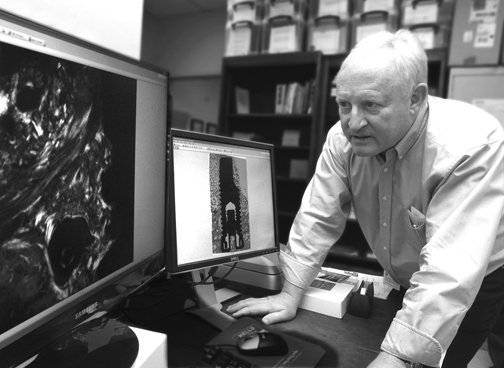Coating enhances dental implant durability
Published 8:00 am Wednesday, January 5, 2011
An experimental method of partially coating a dental implant with a protein that creates bone can increase the implant’s stability, Medical College of Georgia researchers said.
“We’re developing a product that will change the face of implant dentistry,” said Dr. Ulf M.E. Wikesjö, interim associate dean for research and enterprise in the School of Dentistry and corresponding author of the study published in the Journal of Periodontology.
Dental implants are screws that anchor permanent prosthetic teeth. Existing bone often has eroded due to tooth loss, periodontal disease or trauma. The area must be supplemented with bone grafts, biomaterials or devices to augment bone formation before implant placement, which then increases the healing and treatment time for patients.
But Wikesjö and his team with the MCG Laboratory for Applied Periodontal & Craniofacial Regeneration have found that bone morphogenetic protein can create mature bone formation in animals within eight weeks, a difficult or impossible feat for existing technologies, Wikesjö said.
“A BMP-coated implant is in itself a stand-alone delivery system for growing new bone and anchoring a tooth,” he said.
His team compared two protocols in animals – coating an entire titanium implant with the protein versus coating only the exposed portion of the implant that will not be screwed into bone. The goal is for new bone to grow around the exposed portion of the implant above the existing bone.
While both protocols met the target, the fully coated implants were subject to bone remodeling, where mature bone temporarily weakens and reforms into a less mature, spongier bone.
“By focusing the application of the protein only to where we want new bone formed on top, we completely avoided any weakening of existing bone and kept the implant stable,” Wikesjö said.
Implants used in previous studies were prepared in house, but for this study, the coated implants were vacuum-dried using an industrialized process at the manufacturing site.
“Coating and drying implants is time-consuming and requires a very specific environment, and we’ve found this industrialized process will increase implants’ shelf life,” Wikesjö said. “We’ve shown beyond doubt in animal studies that BMP-coated implants have great clinical potential, and we plan clinical trials testing our theories.”
The study was sponsored by Nobel Biocare, a Swedish manufacturer of dental implants and equipment. Wikesjö’s MCG co-authors are Drs. John F. Decker, Jaebum Lee and Cristiano Susin.


